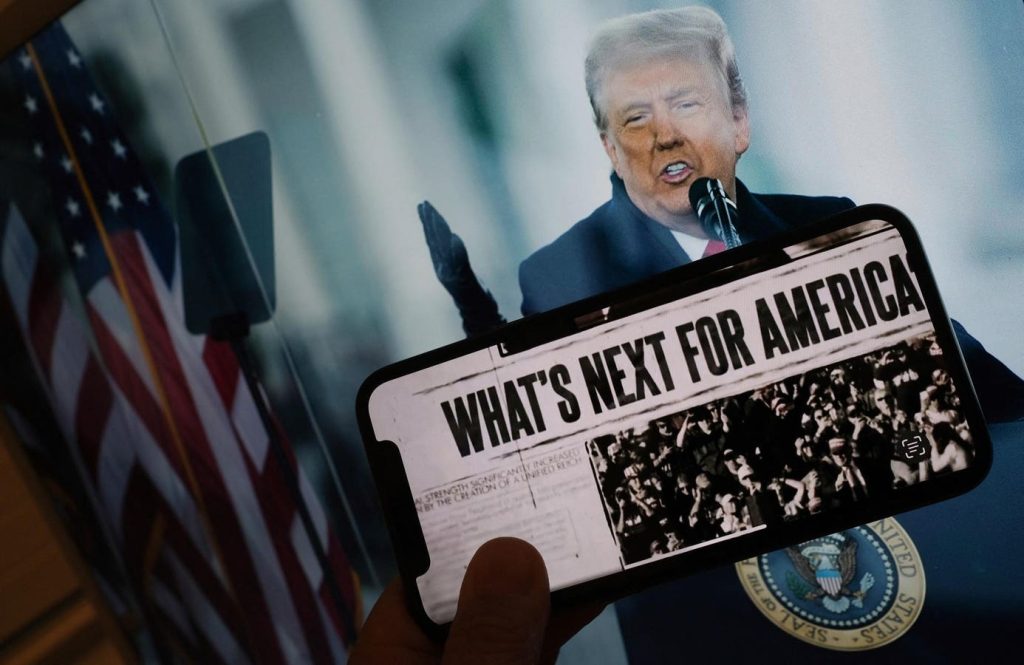The Trump campaign recently posted a video on his Truth Social account that included a reference to a “unified Reich,” a term associated with Nazi Germany. The video was removed after criticism from President Biden’s campaign, suggesting Trump was “parroting” Adolf Hitler’s writings from Mein Kampf. The video included hypothetical news articles about Trump’s potential reelection, with a reference to a “unified Reich” raising concerns about the choice of words and implications.
The use of the word “Reich” in the video sparked controversy and criticism, especially on social media where words can have a significant impact. Experts pointed out that the term could be interpreted in different ways, but its association with Nazi Germany is undeniable. The Trump campaign’s excuse that the video was reposted without seeing the word “Reich” did not sit well with many, as responsibility for social media content falls on the account holder regardless of who posted it.
The Biden campaign used this incident to remind voters of Trump’s past controversial statements, comparing immigrants to “poison in the blood of our country.” They suggested that referencing a “unified Reich” indicates Trump’s intent to rule as a dictator, promoting chaos and division. The video’s deletion after it went viral only added to the negative perception, raising questions about the competence of the Trump campaign’s social media team and their ability to vet content properly.
Experts noted that the pattern of posting and then deleting content can be a deliberate tactic to appeal to different parts of the audience. Whether intentional or not, this incident sheds light on the importance of thorough vetting in political campaigns, especially on social media platforms where information spreads quickly. The use of disinformation campaigns to manipulate public perception is a growing concern, and every entity that uses social media for marketing purposes needs to be vigilant in monitoring and vetting content.
The incident with the Trump campaign’s video serves as a cautionary tale for all political campaigns and organizations using social media. The easy sharing of content online makes it crucial to ensure that information is accurate and not misleading. Disinformation campaigns have been a longstanding feature of American elections, but with advancements in technology like deepfakes and micro-targeting, the effectiveness of such campaigns has increased. Moving forward, campaigns must prioritize responsible social media usage to avoid negative consequences and accusations of spreading false information.


